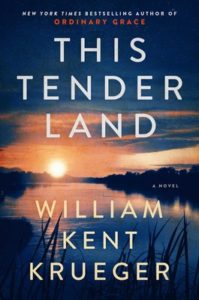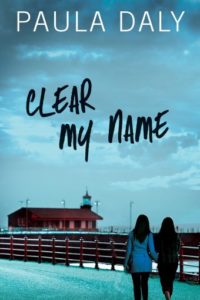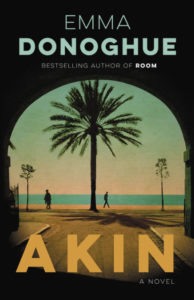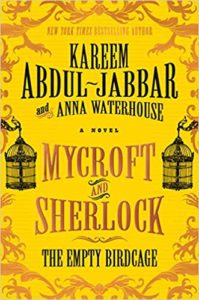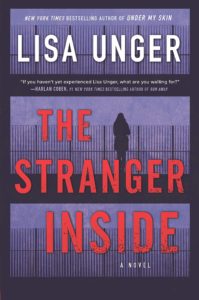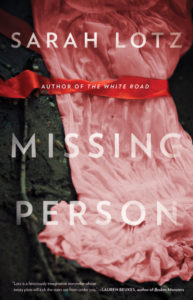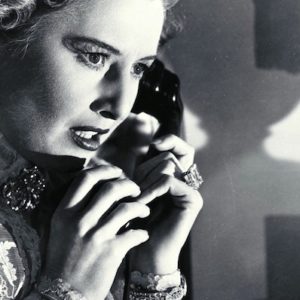At the start of every month, CrimeReads staff members look over all the great crime novels, thrillers, and mysteries coming out in the weeks ahead and make recommendations based on what they’re reading and what they can’t wait to read. Check back over the course of the month for more suggestions for feeding your crime habit.
Attica Locke, Heaven, My Home (Mulholland)
Attica Locke’s sequel to Bluebird, Bluebird, her Edgar-winner novel of crime and reckonings in East Texas, has a fantastic premise—Texas Ranger Darren Matthews heads out to Lake Caddo to track down the missing son of a member of the Aryan Brotherhood, but with a secret mission: to collect evidence against the boy’s father and other members of the white supremacist gang before Trump can shut down the Rangers’ investigation. As Matthews searches for the boy in the Cajun-influenced town of Jefferson and its environs, he discovers a sinister effort on the part of the Aryan Brotherhood to take over land in the near-by historic free black town of Hopetown. Steeped in the music, history, swampy bayous, and piney woods of East Texas, Locke’s latest is not to be missed. —Molly Odintz, CrimeReads associate editor
William Kent Krueger, This Tender Land (Atria)
Krueger’s latest novel is more epic adventure than traditional thriller, but the author’s many ardent fans will be no less anticipating its fall release, as Krueger takes on a grand and ambitious story about four orphans traveling during the Great Depression after breaking free from the Lincoln School for Native American children. This Tender Land is a moving portrait of a time and place receding from the collective memory, but leaving its mark on the heart of what the nation has become.—Dwyer Murphy, CrimeReads managing editor
Paula Daly, Clear My Name (Atlantic)
Paula Daly’s Clear My Name is about a woman who works to exonerate another woman for a possible wrongful conviction of killing a woman. Unlike many of Daly’s novels, it’s not a psychological thriller, but a thoughtful, tense novel about women empathizing and identifying with one another—about looking out for each other in a world of violence and oppressors, and finding the strength to do so when things grow especially difficult.—Olivia Rutigliano, CrimeReads editorial fellow
Emma Donoghue, Akin (Little, Brown)
Emma Donoghue’s Akin is as thoughtful as it is full of surprises. An elderly man about to visit the French town of his youth finds himself caring for his estranged grandson after the boy is left without other guardians, and the two embark on a journey to France—and to the recent, and distant past. When Akin’s narrator suspects his mother of having been a Nazi informant, he and his grandson embark on an investigation that will yield more complex truths than either could have envisioned.—MO
Søren Sveistrup, The Chestnut Man (Harper)
Sveistrup’s debut thriller, The Chestnut Man, is one of the best Scandinavian noir novels I’ve read in ages. The premise is a little complicated: a homicide detective with aspirations and a Europol washout are on the trail of a killer whose compulsion is to kill mothers he sees as unfit. The twist: at each crime scene they find a simple doll made from chestnuts which bears the fingerprint of a government minister’s daughter who has been missing for a year. The book races along, covers some of the standard Scandi tropes about social welfare, but mainly forges its own path—a gruesome and enthralling one.—Lisa Levy, CrimeReads contributing editor
Kareem Abdul-Jabbar and Anna Waterhouse, Mycroft and Sherlock: The Empty Birdcage (Titan Books)
The third in the prequel series starring Sherlock Holmes’s oft-overlooked brother, the brilliant government employee Mycroft, written by 6-time NBA MVP and noted Renaissance Man Kareem-Abdul Jabar and screenwriter Anna Waterhouse, this novel concerns the most apparently-Victorian of plots: the terrorization of London by a mysterious serial killer. Sherlock, Mycroft, and Mycroft’s longtime friend Cyrus Douglas, who is Trinidadian, are on the case. The Mycroft books are notable for shifting the focus of a longstanding Victorian literary tradition, instead creating deep characters who would have been largely ignored or nonexistent in the actual literature of the age: characters of color.—OR
Lisa Unger, The Stranger Inside (Park Row)
What’s it like to be the child who was not abducted when your two best friends were? Twelve-year-old Rain Winter’s life was shattered when her two best friends, Tess and Hank, were taken. Hank managed to escape but Tess is still missing when the police find and prosecute a likely suspect. Fast forward to Rain’s adult life, where she’s made a safe and tidy suburban existance. When she is drawn into the case of a child abduction and murder, things resurface she doesn’t understand. Unger is masterful at creating villains—I’ll say no more—and for her heroines who are vulnerable but always strong.—LL
Lara Prescott, The Secrets We Kept (Knopf)
Prescott’s debut is an epic of passion, daring, and art. Part spy thriller, part intimate drama, The Secrets We Kept is the story of two women working for the government during tense days in the Cold War, enlisted for an audacious plot: smuggling Pasternak’s Dr. Zhivago out of the Soviet Union and into worldwide publication.—DM
Sarah Lotz, Missing Person (Mullholland)
Lotz uses several ingenious devices to tell the story of a “miss per,” a missing person who might be an unidentified murder victim. There are myriad websites that try to connect reports of missing persons with unidentified murder victims: Lotz’s is called Missing-Linc and run by a woman named Chris but known on the site as Ratking1. When one of the site’s members who lives in rural Minnesota connects a lost Irish national with a local corpse known as the Boy in the Dress, the repercussions ripple out from Minnesota to County Wicklow, Ireland. Lotz’s intelligent mystery explores how who we are online affects our real-life interactions as well as presenting a juicy novel.—LL
Holly Watt, To the Lions (Dutton)
To the Lions is a highly promising debut thriller from veteran investigative reporter, Watt, who has covered refugee crises around the world and written about international affairs at the highest rungs of her field. Her protagonist has a similar background—a dogged reporter with an elaborate web of contacts around the world. In To the Lions, she hears whispers in a nightclub about a scion’s suicide, and a death with important ramifications she decides to probe. What follows is one-part spy thriller, one-part journalism procedural, all with a dash of Hitchcock set amongst world destinations both seedy and glamorous.—DM



